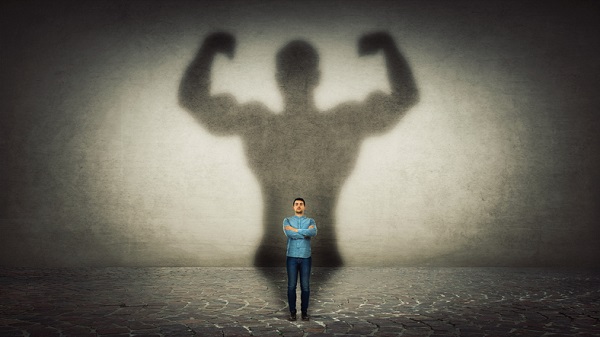
A person’s self-esteem is what guides their social and mental happiness. When one’s self-esteem is low, it can negatively influence both their quality of life and mental well-being (Venzin, 2018). More specifically, it has an impact on a person’s goals and social interactions. Furthermore, low self-esteem can also influence a person’s ability to care for themselves, succeed at work, and more (Lancer, 2019). In addition to instilling feelings of inadequacy and shame, it can lead to that person not being able to pursue their aspirations or find satisfying relationships (“How to Improve Self-Esteem”, 2018).
Since self-esteem directly impacts our behaviour, thoughts, feelings, and relationships with ourselves and others (Lancer, 2019), it’s important to not only discuss what connection self-esteem has with one’s well-being, but what professionals in the field of wellness can do to help clients overcome such issues. Here’s how a wellness counsellor can help clients with their self-esteem.
The Link Between Self-Esteem and Mental Health Explained for Wellness College Students
Self-esteem can have a direct impact on one’s well-being, both positively and negatively. High self-esteem is associated with improved social behaviour and health, while low self-esteem is commonly associated with a number of social and psychological issues (Mann, 2004). These can include internalized issues such as eating disorders, anxiety, depression, and suicidal ideations, and externalized issues like substance misuse or violent behaviour (Mann, 2004). Poor self-esteem can also be a result of events from one’s formative years, including childhood bullying, abusive and/or neglectful treatment from parents, or the presence of depression and anxiety in the client (Lancer, 2019).

Furthermore, having low self-esteem can make some feel as if coping with life’s challenges is a particularly difficult task, especially during significant upheavals in one’s life such as a divorce or job loss, which can further cause someone to lose confidence in themselves (Lancer, 2019). While low self-esteem is unhealthy for many reasons, having overly inflated self-esteem is detrimental in its own right, as it is not reflective of reality and is associated with narcissism (Lancer, 2019).
How Your Wellness Classes Can Help You with Improving Others’ Self-Esteem
A wellness counsellor who has been through wellness counsellor training will know that one of their main responsibilities is to help clients achieve optimal emotional, mental, physical, and spiritual wellness (“Rhodes Wellness College: Program Calendar”). Given the impact that low self-esteem can have on each of these dimensions of wellness, it’s important for a wellness counsellor to identify and improve certain factors contributing to self-esteem issues.

These can include helping the client challenge their negative thought patterns, which include—but are not limited to—self-blame, catastrophizing, projecting, polarization, or rehashing one’s mistakes from the past (“How to Improve Self-Esteem”, 2018). Such thought processes can also include mental filtering, confusing feelings for facts, turning positive achievements into negative ones, and reaching negative conclusions despite little to no evidence of this (“Self-esteem: Take steps to feel better about yourself”).
To combat these thoughts, a graduate of wellness college can help clients practice mindfulness-based interventions in order to help them catch destructive thought patterns, and subsequently push back against them (“How to Improve Self-Esteem”, 2018). They can also help improve the client’s sense of emotional wellness by increasing their capacity for self-compassion. This can be broken down into three elements: kindness and forgiveness toward themselves, the acknowledgement that no one is perfect, and acknowledging their emotions without being consumed by them (“How to Improve Self-Esteem”, 2018). A wellness counsellor can also encourage their client to regularly practice self-care (Donovan, 2018), as well as involve themselves more in physical activity, as exercise can release endorphins that improve one’s self-esteem (BestSelf Co, 2018).
Do you want to get your wellness counsellor diploma?
Contact Rhodes Wellness College for more information.
Works Cited
BestSelf Co. (2018, March 14). 7 Dimensions of Wellness for Happiness, Health, and Success. Retrieved from https://blog.bestself.co/best-self/7-dimensions-of-wellness/
Donovan, R. (2018, December 17). Self-esteem and self-care are important aspects of a healthy lifestyle. Retrieved from https://monq.com/eo/health-wellness/self-esteem-self-care/
How to Improve Self-Esteem. (2018, May 9). Retrieved from https://www.goodtherapy.org/learn-about-therapy/issues/self-esteem/improve
Lancer, D. (2019, March). Self Esteem Therapy: Counseling For Low Self Esteem. Retrieved from https://www.therapytribe.com/therapy/self-esteem-therapy/
Mann, M. (2004). Self-esteem in a broad-spectrum approach for mental health promotion. Health Education Research, 19(4), 357–372. doi: 10.1093/her/cyg041
Rhodes Wellness College: Program Calendar. (n.d.). Retrieved January 16, 2020, from: https://www.rhodescollege.ca/pdf/rhodes-wellness-college-program-calendar.pdf
Self-esteem: Take steps to feel better about yourself. (2017, July 12). Retrieved from https://www.mayoclinic.org/healthy-lifestyle/adult-health/in-depth/self-esteem/art-20045374 Venzin, E. (2018, July 8). How Does Low Self-Esteem Negatively Affect You? Retrieved from https://psychcentral.com/blog/how-does-low-self-esteem-negatively-affect-you/









